- Region
- Águilas
- Alhama de Murcia
- Jumilla
- Lorca
- Los Alcázares
- Mazarrón
- San Javier
-
ALL AREAS & TOWNS
- AREAS
- SOUTH WEST
- MAR MENOR
- MURCIA CITY & CENTRAL
- NORTH & NORTH WEST
- TOWNS
- Abanilla
- Abarán
- Aguilas
- Alamillo
- Alcantarilla
- Aledo
- Alhama de Murcia
- Archena
- Balsicas
- Blanca
- Bolnuevo
- Bullas
- Cañadas del Romero
- Cabo de Palos
- Calasparra
- Camping Bolnuevo
- Campo De Ricote
- Camposol
- Canada De La Lena
- Caravaca de la Cruz
- Cartagena
- Cehegin
- Ceuti
- Cieza
- Condado de Alhama
- Corvera
- Costa Cálida
- Cuevas De Almanzora
- Cuevas de Reyllo
- El Carmoli
- El Mojon
- El Molino (Puerto Lumbreras)
- El Pareton / Cantareros
- El Raso
- El Valle Golf Resort
- Fortuna
- Fuente Alamo
- Hacienda del Alamo Golf Resort
- Hacienda Riquelme Golf Resort
- Isla Plana
- Islas Menores & Mar de Cristal
- Jumilla
- La Azohia
- La Charca
- La Manga Club
- La Manga del Mar Menor
- La Pinilla
- La Puebla
- La Torre
- La Torre Golf Resort
- La Unión
- Las Palas
- Las Ramblas
- Las Ramblas Golf
- Las Torres de Cotillas
- Leiva
- Librilla
- Lo Pagan
- Lo Santiago
- Lorca
- Lorquí
- Los Alcázares
- Los Balcones
- Los Belones
- Los Canovas
- Los Nietos
- Los Perez (Tallante)
- Los Urrutias
- Los Ventorrillos
- Mar De Cristal
- Mar Menor
- Mar Menor Golf Resort
- Mazarrón
- Mazarrón Country Club
- Molina de Segura
- Moratalla
- Mula
- Murcia City
- Murcia Property
- Pareton
- Peraleja Golf Resort
- Perin
- Pilar de la Horadada
- Pinar de Campoverde
- Pinoso
- Playa Honda
- Playa Honda / Playa Paraíso
- Pliego
- Portmán
- Pozo Estrecho
- Puerto de Mazarrón
- Puerto Lumbreras
- Puntas De Calnegre
- Region of Murcia
- Ricote
- Roda Golf Resort
- Roldan
- Roldan and Lo Ferro
- San Javier
- San Pedro del Pinatar
- Santiago de la Ribera
- Sierra Espuña
- Sucina
- Tallante
- Terrazas de la Torre Golf Resort
- Torre Pacheco
- Totana
- What's On Weekly Bulletin
- Yecla


- EDITIONS:
 Spanish News Today
Spanish News Today
 Alicante Today
Alicante Today
 Andalucia Today
Andalucia Today
Spanish News Today Editors Roundup Weekly Bulletin July 4
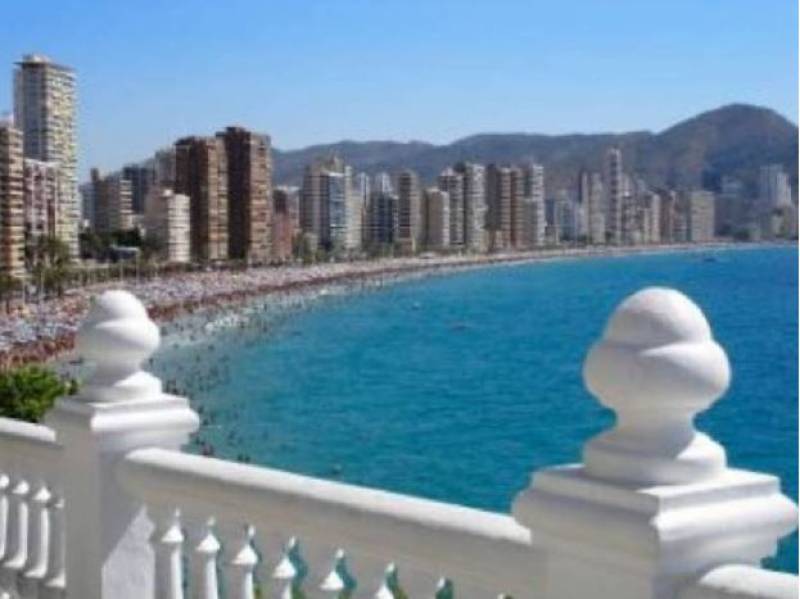
TOP STORIES: "New rules for short-term rentals come into effect in Spain on July 1" and "Pilar de la Horadada AP-7 tunnel finally opens after serious delays"
From new regulations to soaring temperatures and tourist numbers, it's been quite the week.
All these stories, plus more from around Murcia, Alicante Andalucía and Spain in this week’s Editor’s Roundup Weekly Bulletin.
Let’s get stuck in!
July shake-up
Well, here we are in July already and if you're living in Spain or own property here, you're probably going to want to sit down for this one. The Spanish government has decided to throw us all a curveball by introducing three major changes all at once. It's like they wanted to get everything sorted before August when, let's be honest, the whole country basically shuts down for holidays.
So what's happening? We're looking at holiday rentals, train travel and motorcycle licenses all getting major makeovers. And yes, it's all happening right now.
Let's start with the big one that's probably affecting a lot of you reading this. If you've been renting out your apartment, spare room or holiday home to tourists, your life just got a bit more complicated. From this Tuesday, every single holiday rental property in Spain has to be registered with something called the Digital One-Stop Shop for Rentals. No exceptions.
 Now, this isn't completely out of the blue. The system has been available voluntarily for the past six months, but now it's mandatory. And here's the kicker: you can't advertise your property anywhere online without that shiny new registration number. We're talking Airbnb, Booking.com, the whole lot. They all need to see that number displayed prominently in your listing.
Now, this isn't completely out of the blue. The system has been available voluntarily for the past six months, but now it's mandatory. And here's the kicker: you can't advertise your property anywhere online without that shiny new registration number. We're talking Airbnb, Booking.com, the whole lot. They all need to see that number displayed prominently in your listing.
The good news? People have actually been pretty good about signing up. Nearly 200,000 applications have come in since January, with more than 125,000 flooding in just this past month as everyone scrambled to meet the deadline.
But here's where it gets a bit tricky. This national registration doesn't get you off the hook for local permits and the general tourist licence. Many towns and cities still want their own paperwork, so you'll need to prove you're playing by their rules too when you apply for your registration code.
The platforms themselves aren't escaping this either. Airbnb and Booking.com now have to display these registration numbers and send monthly reports to the government. And if they don't? Well, let's just say the fines are substantial enough to make them pay attention.

Spain's summer scorcher
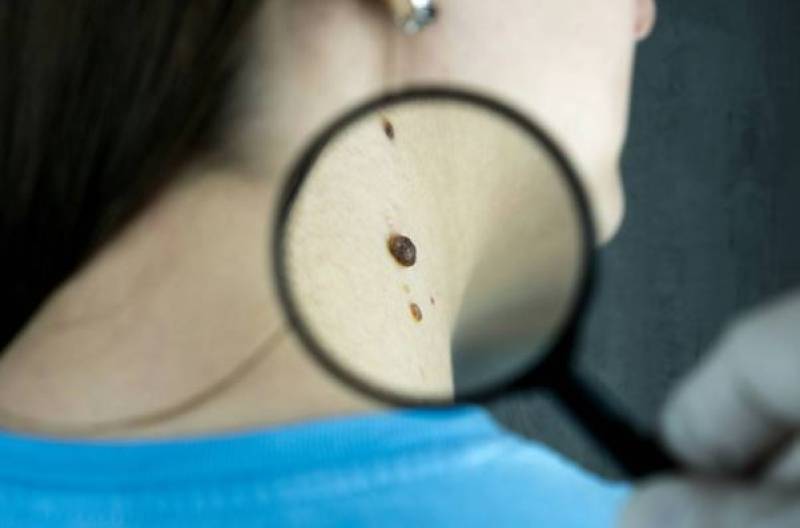 But there's another concerning trend that's connected to all this intense sun exposure. Spain is experiencing a worrying surge in melanoma cases, with new figures showing that diagnoses have risen by nearly 50% in just ten years. That's a staggering increase that has dermatologists sounding the alarm.
But there's another concerning trend that's connected to all this intense sun exposure. Spain is experiencing a worrying surge in melanoma cases, with new figures showing that diagnoses have risen by nearly 50% in just ten years. That's a staggering increase that has dermatologists sounding the alarm.
Summer stampede?
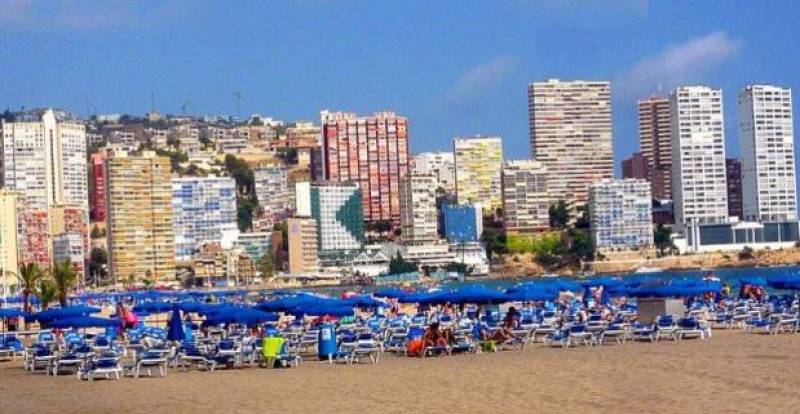
Murcia
We start our Murcia section in the Lorca district of Purias this week, where a housing development that has been sitting unfinished for more than a decade is finally getting a second chance. The Jardines de la Almenara project, originally aimed at British and Central European buyers during the early 2000s property boom, was meant to include 300 homes, but after the financial crash just 50 were completed and the rest abandoned. No lighting, bins or even roads were installed.
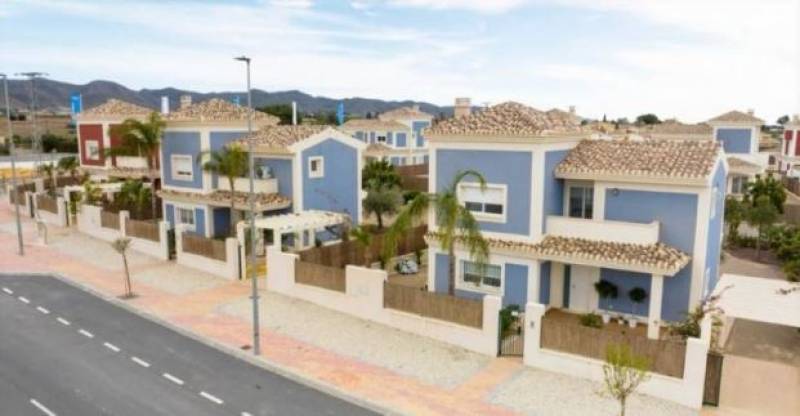
Now, though, a €3.3 million investment from a new developer has been approved by Lorca City Council, breathing life back into the stalled project. The remaining homes will be built and the long-missing infrastructure put in place, all in line with current regulations. After years of gathering dust, the area could finally turn into the lively community it was supposed to be.
Over in Cartagena, restoration work is under way on the Arco de la Milagrosa, a lone stone arch that once formed part of the old Casa de Misericordia in the city centre. Although the rest of the building is long gone, the arch still stands and is now getting some well-deserved care. Work includes cleaning, stabilising the original sandstone, replacing missing bricks and reinforcing the structure, all with a focus on preserving its historical character.
Meanwhile, Mazarrón has been delving into its past, too, with researchers conducting new studies on the recently recovered of the Mazarrón II shipwreck, a Phoenician trading vessel from the 7th century BCE. With the ship finally lifted from the seabed in the Port in 22 different sections and transferred to ARQUA, Spain’s National Museum of Underwater Archaeology in Cartagena (not a separate facility that Mazarrón’s mayor kept going on about building specifically), investigators can now study them.
What they have discovered so far is that the ship, which is made from Mediterranean pine and fig woods, shows a mix of shipbuilding styles and materials, suggesting a blend of local and Eastern Mediterranean techniques. The cargo, which includes lead ingots and pottery, hints at coastal trade routes and gives more weight to the idea that Mazarrón played an important role in early Mediterranean commerce. No doubt there will be more new revelations as further studies are conducted over the coming years.
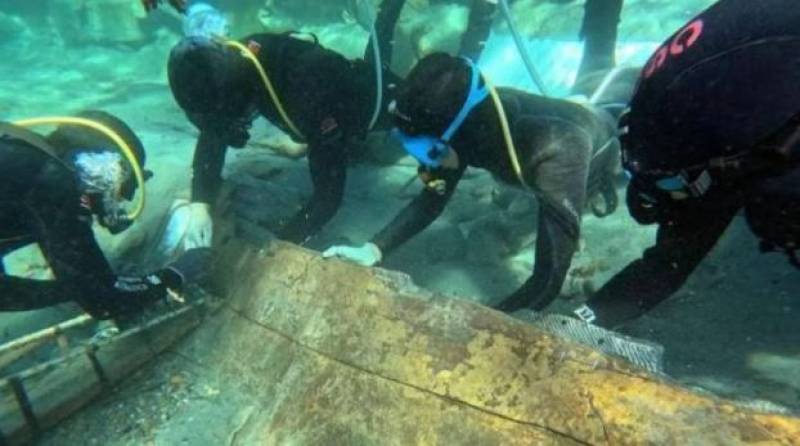
Talking about studies conducted in the Port of Mazarrón, the water at the beach of Puerto had to be closed this Thursday due to slightly elevated levels of faecal contamination in the water. They found what can euphemistically be called ‘human waste’ in the water, and not just a little bit, either. Unhealthy levels of it, even though there’s no evidence it came from a leak in the town’s wastewater system.
Local authorities are putting it down to the fact the beach is too crowded, but if that were the case, why wouldn’t the same thing happen on pretty much every other beach in Spain? Something smells here, methinks… in any case, after just over 24 hours, the beach was reopened after a further water quality study declared it was safe to swim again.
Elsewhere in the Region, things were all abuzz in the northern town of Cieza, where two beekeepers are under investigation by police for selling industrial-grade honey as if it were locally produced and artisanal. Guardia Civil officers from the environmental crimes unit, Seprona, seized over 3,100 kilos of honey, pollen and propolis worth about €20,000.
The products lacked proper documentation, and some were thought to be unfit for human consumption. The pair are facing a list of charges including public health violations, market fraud and misappropriation of subsidies.
Now we’re in July, the regional government has decided to increase the frequency of airport buses to and from Corvera airport, nearly doubling the number of journeys there and back. But the problem is that the buses still only go to and from the bus stations at Murcia city and Cartagena, whereas the cost-effective private service launched a couple of months ago by Airport Buses goes to all the little towns and resorts and their bus times match up perfectly with outgoing and incoming flights. If they’re not careful, the regional government might find themselves pushed out of a job by the new service!
At Las Terrazas de la Torre Golf Resort, people are getting pumped. After months of curiosity and anticipation about the new business preparing to open in the corner unit of the Square, residents finally have a date for the opening of a new gym. The CAN Fitness Center is set to open its doors on Monday July 14, offering a full suite of workout machines and fitness classes – a very exciting prospect for the local community.
 Before the official opening, there’s an inauguration party on Friday 11 July at 7pm, where locals can drop by, check out the space and sign up. It’s a big step for the urbanisation, which has long been hoping for more active facilities within walking distance, and is one of the resorts which seems to genuinely be on the up-and-up in Murcia, with plenty of new investment coming in.
Before the official opening, there’s an inauguration party on Friday 11 July at 7pm, where locals can drop by, check out the space and sign up. It’s a big step for the urbanisation, which has long been hoping for more active facilities within walking distance, and is one of the resorts which seems to genuinely be on the up-and-up in Murcia, with plenty of new investment coming in.
Speaking of which, there has been a major development in Cartagena’s retail sector as the Espacio Mediterráneo shopping centre has just been sold to Lighthouse Properties, a South African investment group, for an impressive €135.4 million. This is the first change in the commercial centre’s ownership since it opened in 2007.
With shops like Zara and Primark, the mall has a high occupancy rate and remains one of the Region’s key shopping destinations. Which is why Lighthouse expects a strong return from its purchase: they forecast net profits of €5.8 million in 2026. Pretty tidy.
And while the millionaires are getting more millions, popular Murcia singing group Sonrisas Harmony have donated €600 to AFACMUR, a charity that helps children with cancer and their families in Murcia. Three chorus members presented the cheque to the charity’s manager, Lourdes Albaladejo, who said the money would support three families for several months. The funds were raised through the group’s performances over the past year, backed by their followers
It’s a touching gesture of community support of the kind that many Murcia volunteer groups like to make to charity, and Sonrisas Harmony expressed their heartfelt thanks to everyone who made the donation possible. Now just think what those poor children and their families could do with €5.8 million…
And finally, for anyone looking to stay active this summer without spending a cent, beach fitness classes are back in Cartagena and San Pedro del Pinatar. Through July and August, various beaches across both areas will host free sessions of yoga, Pilates, aquagym, dance fitness and more. No booking is needed – just turn up and join in. Classes are all led by qualified instructors and open to people of all fitness levels, and you might make new friends while you’re at it!
Other things going on this weekend and for the coming week in the Region of Murcia include the summer carnival in Puerto de Mazarrón on Saturday, a summer DJ Festival in the Caravaca village of Archivel on Saturday night and the first event of the upcoming Flamenco Festival in Lo Ferro on Sunday, as well as, of course, the continuation of the San Javier Jazz Festival 2025, which is going on until Tuesday July 22.
See our EVENTS DIARY for more events and activities coming up soon in the Region of Murcia:
Spain
 At the moment, the Irish airline permits a free “personal bag” measuring 40 x 25 x 20cm, which provides 20 litres of storage space. However, following the discussions in Europe, Ryanair has chosen to increase one measurement from 25 to 30cm. The new dimensions will be 40 x 30 x 20cm, offering passengers 24 litres of capacity.
At the moment, the Irish airline permits a free “personal bag” measuring 40 x 25 x 20cm, which provides 20 litres of storage space. However, following the discussions in Europe, Ryanair has chosen to increase one measurement from 25 to 30cm. The new dimensions will be 40 x 30 x 20cm, offering passengers 24 litres of capacity.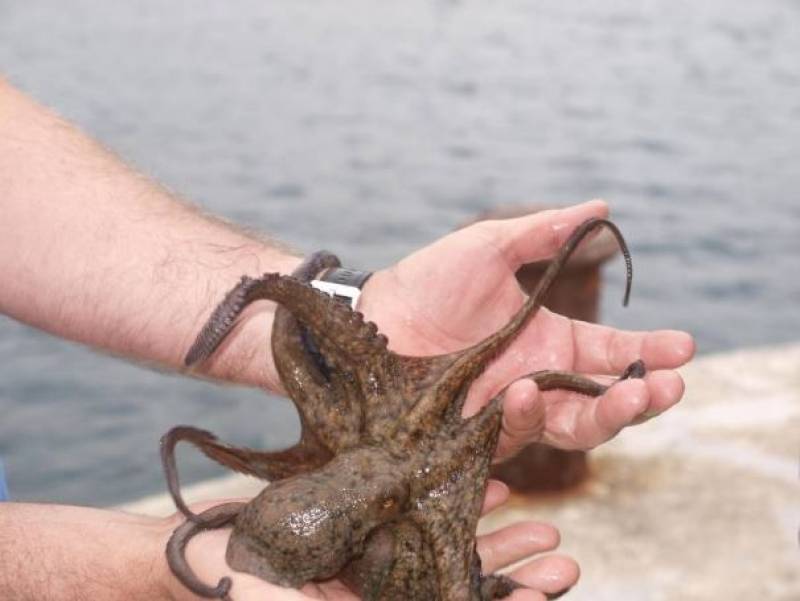
Alicante
Just when you thought it was safe to go back in the water, faecal matter was detected at a popular Costa Blanca beach this week.
Swimming was prohibited at Cala Cerrada beach in La Zenia, Orihuela Costa, after the weekly water quality test on Tuesday detected contamination from a wastewater spillage in the sea.
Access to the water was suspended until the morning of Friday July 5, when Orihuela town hall beaches department announced that further tests had been carried out, which found that the water quality now met the required criteria and it was safe to swim there once again.
Hopefully the contamination was not bad enough to make anybody seriously ill, but the risk of getting a dodgy belly or even E-coli is not great for tourism or what we might expect from a Blue Flag beach.
This is not the first time it has happened recently in Orihuela Costa, where beaches have had to be closed due to spillages and sanitation breakdowns in 2022 and 2024 at Cala Mosca, La Glea and Cala Cerrada.
And this year, the NGO Ecologístas en Acción awarded one of their Black Flags to nearby Cala Mosca, due to the environmental impact of new housing being built there.
The Orihuela PSOE called for an urgent audit to determine the condition of the sanitation and water treatment networks on the coast, and an action plan to reinforce them.
Also in Orihuela Costa, and in neighbouring San Miguel de Salinas, Guardia Civil have seized 84 kilos of cocaine and arrested four Irish nationals in connection with a bold cross-border smuggling operation.
The gang had allegedly been hiding large amounts of cocaine and hashish inside industrial machines and sending them off to the UK and Ireland using local transport companies.
The authorities got wind of the racket in early June this year, when a transport company in Lorquí (Murcia) filed a complaint with the Guardia Civil because one of their lorry drivers had been arrested in France after customs officers found 340 kilos of hashish hidden in what was supposed to be a shipment of industrial fans bound for Liverpool.
The subsequent investigation tapped phones and installed tracking devices on two vehicles linked to the suspects, which revealed that a full-blown international trafficking ring was using companies in Alicante and Murcia to move drugs hidden inside heavy-duty equipment.
They also learned the same gang was planning to send a similar shipment to Dublin and tracked them to a company in Monóvar, where a lorry showed up on June 11 carrying an industrial drill.
Officers found 84.2 kilos of cocaine cleverly concealed inside the machine, which they removed and sent to Ireland, where police were waiting to see who would collect it.
On June 20, Guardia Civil officers arrested four Irish nationals living in Orihuela Costa and San Miguel, including the lorry driver. They also carried out searches and seized two firearms, as well as another drill which had also been prepared to hide drugs.
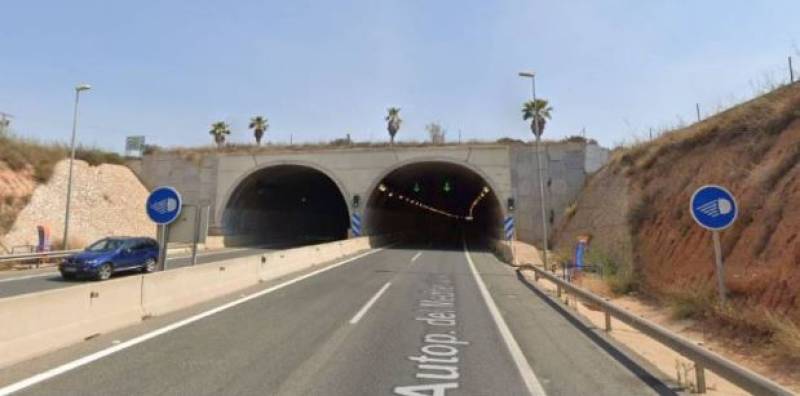 And finally, after a couple of unexpected delays, the southbound carriageway of the AP-7 motorway in Pilar de la Horadada reopened on Thursday June 3.
And finally, after a couple of unexpected delays, the southbound carriageway of the AP-7 motorway in Pilar de la Horadada reopened on Thursday June 3.
Although the motorway concessionary Ausur, the Ministry for Transport roads department and even the mayor of Pilar had previously announced it would reopen sooner, the bollards blocking the lanes were eventually removed late on Thursday evening.
This stretch of the road, from kilometre mark 772 as far as San Pedro del Pinatar in the Region of Murcia, has been closed since a fatal truck crash inside the tunnel on May 9.
The lorry lost control and flipped over, bursting into flames and causing thousands of euros worth of damage
The work consisted of repairing all the power and communications cables, including the cable trays that support them, surveillance cameras, lighting equipment, SOS posts and even a pair of large indoor fans.
The damaged road surface and the fire hydrant system have also been replaced.
Analysis of the concrete vault found no apparent structural damage from the high temperatures caused by the vehicle fire.
The 800-metre-long tunnel is expected to handle more than 20,000 vehicles every day this month, which will considerably reduce tailbacks and traffic jams on the N-332 and other roads in Pilar.
Other work to improve energy efficiency and safety in the tunnel, which the Ministry for Transport had been planning to carry out before this summer until the crash happened, has now been postponed to the autumn.
For other events and activities happening in the area, check out the What’s On page of Alicante Today or join the Costa Blanca What’s On and Where to Go Facebook group
Andalucía
A 48-year-old British woman was killed on Saturday June 28 when the jet ski she was riding collided with a motorboat near Playa de Los Toros. The woman had been a passenger on the jet ski, which was being driven by her partner, while the boat was reportedly operated by a friend of the couple.
Police believe the crash was caused by a reckless manoeuvre by the motorboat, and the driver has since been arrested on suspicion of reckless homicide. He tested positive for alcohol, although not at a high level, and has been released under investigation.
Emergency crews from maritime rescue services and local health teams arrived quickly on the scene, but despite their efforts, the woman could not be revived and was pronounced dead at the scene.
Back on dry land, some forward planning is on the cards for shoppers. The Andalucian government has just published the official list of Sundays and public holidays when shops will be allowed to open in 2026.
These 16 dates are timed to catch the major sales seasons, festive periods and long weekends, giving both businesses and shoppers a bit more flexibility. Although it might seem a little early to be thinking about next year’s retail calendar, the list must legally be confirmed before Saturday August 31 of this year.
Highlights include the January sales, summer bargains in July and August, and several Sundays leading up to Christmas. Notable dates include Holy Thursday on April 2 and the national holiday on Saturday August 15. Town halls can tweak up to two of the dates locally, so do check nearer the time. After all, it is never too early to plan ahead for a good shopping spree.
From retail planning to courtroom headlines, this week also saw a long-running pharmaceutical case make headlines again. Back in 2019, a group of children in Cantabria, Valencia and Andalucía were mistakenly given hair-loss medication instead of a stomach treatment, causing them to develop a rare condition known as hypertrichosis or "Werewolf syndrome."
The condition, which causes excessive hair growth across the body, was triggered by a packaging mix-up at a pharmaceutical company, where minoxidil, a drug used to treat hair loss, was incorrectly labelled as omeprazole, a treatment for gastric issues. Some of the affected children were just a few months old at the time.
Thankfully, the symptoms began to reverse after the medication was discontinued, and none of the children suffered lasting harm. While no charges have been brought against the company or its staff, families in Cantabria and Castellón are reportedly considering civil legal action of their own.
And finally, in some lighter and more heart-warming news, a tiny seahorse in Almería is recovering after suffering a suspected stroke caused by an air embolism.
The young female seahorse, believed to have suffered the condition due to a sudden rise from deeper water, was rushed to the Costa de Almería Aquarium in Roquetas de Mar. There, veterinary staff used a hypodermic needle to gently release the trapped gas - a delicate procedure requiring great care and expertise.
Seahorses in the Mediterranean are increasingly vulnerable to hazards such as marine pollution, fishing nets and abandoned gear. This one was lucky to have been found in time, and she is now under close observation with hopes of making a full recovery.
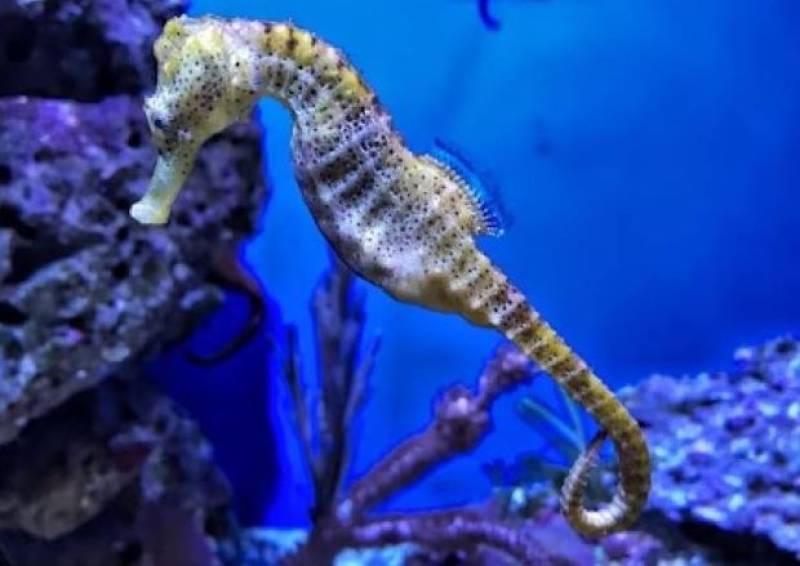
You may have missed…
- Ryanair and easyJet flights disrupted at Spanish airports over French air traffic control strike.
Holidaymakers travelling through Murcia, Alicante and other Spanish airports face widespread delays and cancellations. - Power of attorney: Because you never know when you might need someone.
Whether you are buying a property, have health concerns or are simply making provisions for the future, a power of attorney could save you a great deal of time, money and aggravation. - Nearly half of Spain's crumbling roads are concentrated in just 3 regions.
Just three autonomous communities actually account for almost half of the country’s roads that require urgent repairs, within a year, if they’re not to crumble away altogether. - Murcia taxpayers receive €290.5 million in refunds.
According to the tax office itself, a whopping €290.545 million in overpayments has already been returned to workers in the Region of Murcia, which is a 4.45% increase in refunds compared to the 2023 campaign.. - easyJet announces 8 new routes in Spain for winter 2025.
The British low-cost airline will add more than 110,000 additional seats to the UK and France.
And that’s all for this week. Thanks for reading and we’ll be back next week with another edition.
Have a nice weekend!
















